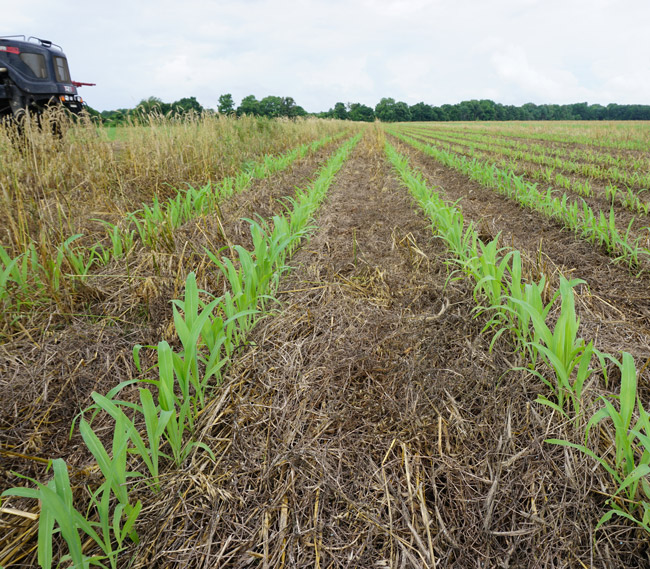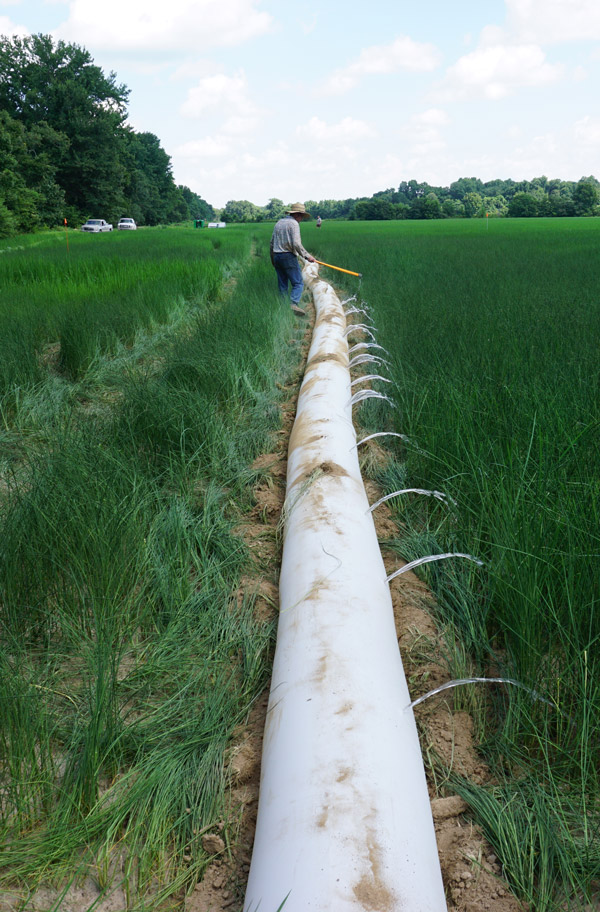Green Will Study Cover Crop Potential with USDA-NRCS Grant
JONESBORO – Demonstrating the profitability of cover crops through collection and analysis of data is one of the goals of a new research project directed by an Arkansas State University professor.
Steve Green hopes to show how the use of cover crops can result in less expense for fertilization and irrigation. Dr. Green is professor of soil and water conservation at A-State, where he has taught and conducted research since 2006.
As director of the research project, he will analyze the result of integrating cover crops into Arkansas Delta row crop systems. He and fellow researchers will assist farmers in the Arkansas Soil Health Alliance with documenting data and sharing information about the benefits of cover crops.
The project was funded by a grant of more than $300,000 from the Natural Resources Conservation Service (NRCS) of the U.S. Department of Agriculture. Dr. Green’s proposal was selected from a pool of 29 applications.
"Farmers in the Delta region are hearing a lot about cover crops and soil health," Green explained. "By partnering with the NRCS on this project, we will document the changes in irrigation and nitrogen inputs required due to cover crop usage and we will perform an economic evaluation of participating farmers' management with cover crops."
Collaborating on the project with Green are Dr. Joe Massey, research agronomist with the Delta Water Management Research Unit of the U.S. Department of Agriculture's Agricultural Research Service in Jonesboro; Dr. Chris Henry, irrigation specialist with the University of Arkansas Rice Research and Extension Center at Stuttgart; and Mark Jordan, agricultural economist with the College of Agriculture, Engineering and Technology at Arkansas State.
The researchers will analyze farmers' data to determine how much mineral nitrogen fertilizer and irrigation water can be reduced through the use of cover crops, and also will demonstrate how cover crops can be profitable in the cash crop system.
"In every conversation we have with farmers, they want to know the return on investment by using cover crops in their farming operation, so that is what we are going to determine for them in addition to the soil health benefits," the professor added. "I believe soil health and economic prosperity can go hand in hand."
The farmer cooperators who will collect date on their farms are Robby Bevis of Lonoke, Bill Carwell of Cherry Valley, Adam Chappell of Cotton Plant and Mike Taylor of Helena-West Helena.
"We are happy for Dr. Green and the opportunity for him to pursue his passion for soil health and sustainable cropping systems," stated Dr. Tim Burcham, dean of the College of Agriculture, Engineering and Technology. "The partnerships featured in this research provide a firm foundation for future endeavors."
# # #







